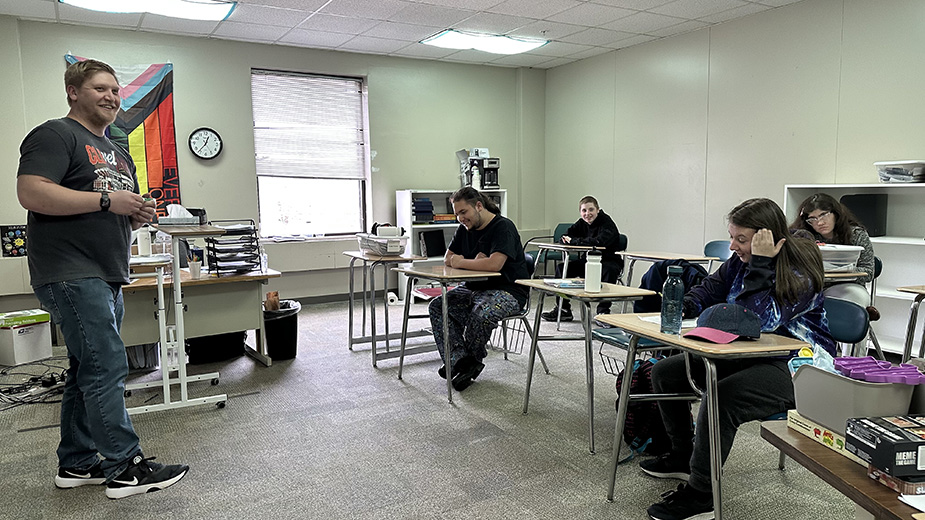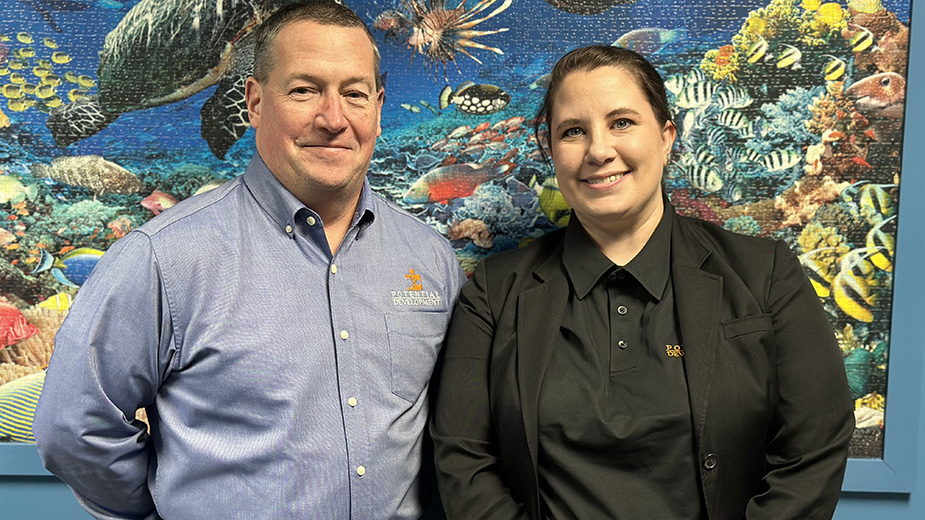YOUNGSTOWN, Ohio – Although children on the autism spectrum face greater challenges than other students, one local charter school is ensuring they receive the same opportunities.
Paul Garchar, CEO of Potential Development, says the comprehensive education at the Youngstown school serves approximately 245 students.
“All of the students are on the spectrum,” he says. “They have an individual education plan – an IEP – through their local schools. So they have specific goals that they work on.”
The school also teaches the Common Core State Standard, which means students are taught reading, math, science and social studies – similar to what they would be taught in public schools.
“Students with us are on a long journey that starts with preschool,” he says. “Children can start with us as early as age 2 1/2. The preschool building serves kids 2 1/2 [years old] to age 6.”
This is the age when many parents realize their child has autism and Potential Development helps guide them through this time.

This year’s graduating high school class will have about a dozen students, says Garchar. Some of the lower grade levels have over 20 students. “It continues to grow every year,” he says.
Students move to the high school building in 7th grade. Garchar says this is when they really begin to work with parents to make plans for their children after graduation.
“Those four or five years are going to go by so quickly and they need to be prepared if they need to reach out to the DD [developmental disabilities] board to get a waiver in place, if they know their son or daughter wants to try a community college or maybe go on to YSU,” he says. “They need to start thinking about the ACT [test] and things like that.”
With the incidence rate of autism today one in 44 births, Garchar says early intervention is vital.
According to the U.S. Centers for Disease Control and Prevention, those with autism spectrum disorder commonly have other related characteristics.
These can include delayed language, movement or cognitive skills, hyperactive, impulsive and/or inattentive behavior, epilepsy or seizure disorder, unusual eating and sleeping habits, gastrointestinal issues, unusual mood or emotional reactions and lack of fear or more fear than normal.
“The earlier they start into an organized program, get speech and occupational therapy in place, [and determine] if there are any sensory issues, the better off they are going to be,” Garchar says.
Every student with autism is different so teacher- to-student ratios are kept at around 2:1. In a classroom of five students, he says there will be at least two staff members in the room.
“We are able to focus on an individual student,” he says.
The main concern of running a specialized school is students could miss out on typical experiences that children experience in public schools, Garchar says.
“We really took that to heart,” he says.
To mitigate that disparity, Garchar says Potential Development has added a lot of programs, including Special Olympics, bowling, basketball, track, prom and bringing students to Youngstown State University for its English festival.
The school also works with Students Motivated by the Arts and the YMCA of Youngstown.
“We try to round out our academics with a good selection of extracurricular activities,” he says.
Students attend the school Monday through Friday from 8:30 a.m. to 2:30 p.m. The school year is longer than public school.
“We start in the middle of August and go through the middle of July,” he says. “We don’t have a long summer break so there is not a lot of chance for students to regress or lose a lot of skills.”
The school has about 150 teachers, teacher assistants, therapists, and support and clerical workers. It has 50 classrooms among the three buildings.
“Right now, our main source of funding is an autism scholarship program,” he says, explaining how it works: “We will have a student on the spectrum [and] they have a current IEP with their local school. They can apply to the Ohio Department of Education and receive a scholarship to attend the private school.”
April is Autism Awareness Month and the importance of the designation is to continue to get the message out that there are options and support for families.
“If you first find out that your son or daughter is on the spectrum, or even if you already know and are starting to experience some issues in your local schools, the first thing would be to call and schedule a tour,” Garchar says. “We cannot easily explain the way we do things. You have to come here and see it for yourself.”
Katie Petridis, high school program coordinator, started as an elementary teacher at Potential Development six years ago. She says the high school has two tracks: academic and life skills.
In addition to the other extracurricular activities, Petridis says Smarts staffers visit the school to teach drum and art classes. The school also makes weekly visits to the Jewish Community Center for organized gym activities and swimming.
“We have all of the classes, credits and courses that our students need for graduation,” he says. “That’s all of the core subjects – math, language arts, science, social studies and electives. We also do the Ohio state testing.”
Students exiting the school receive a diploma.
“We are building our transitions program,” she says. “We like to gauge our students’ interests for what they would like to do after high school. That could be going into the workforce, going into college or going into a day program.”
The school also works with Opportunities for Ohioans with Disabilities for pre-employment training so students can learn skills in interviewing and self-advocacy.
“We like to give our students some on-the-job experience,” Petridis says. “In-house, we have a workforce workshop sponsored by PHD Manufacturing [in Columbiana] and [students] learn how to make metal clamps to learn what it is like in a manufacturing environment.”
Students are also taken to various organizations in the community to learn what it’s like to work in a commercial kitchen, landscaping or other fields, Petridis says.
“Autism awareness is important because our students need to be accepted for who they are,” she says. “They have challenges. But they also have a lot of strengths. And they can do anything that anybody else can do. They just need that time and that space to be able to get there.”
Pictured at top: Paul Garchar is CEO of Potential Development and Katie Petridis is the high school program coordinator.
